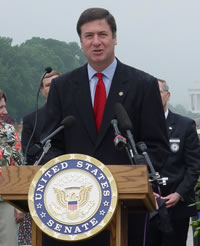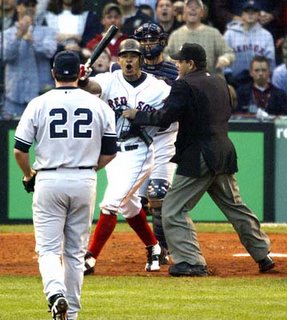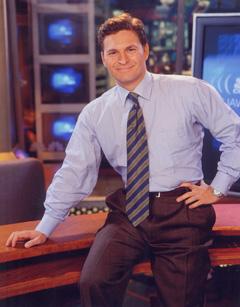
My first child is now 14 months old and I wish to share some of my insights and lessons from first year parenthood.
My son was born last November at the Presbyterian Hospital in Charlotte.
Lesson One:
DO NOT WATCH A C-SECTION.
My cousin, a doctor himself, warned me that the procedure is almost straight out of a Jaws movie. I mostly averted my eyes but the couple of glimpses that I caught were most retching. There were two student nurses in there observing and one of them actually feinted. Good luck to her in her medical career. It was also most discomfiting to hear the doctors and nurses so glibly discuss their Thanksgiving plans while they had my wife’s belly wide open. Anyway, fortunately the whole process went smoothly and we were extremely happy with the maternity ward there.
So the first night that the baby slept in our room, knowing that we had to feed the baby in about 3 hours, we openly wondered how we would know when to get up and do so. Did we need to set an alarm for 3 hours or what? The nurse heard our discussion and apparently contained all of her laughter.
We soon figured it out that the baby WAS THE ALARM. Screaming his head off was plenty sufficient to both wake us up and alert us to his hunger. In fact, 14 months later my son still role plays as the family/neighborhood alarm clock.
This reminds me a bit of the so-called baby monitor. What rookie parent wouldn’t possibly think about not “monitoring” their child? Every Mom-to-be gets it but it may be the most unnecessary baby appliance. It is almost one of these pure marketing products.

Lesson Two:
YOU DON’T NEED A BABY MONITOR.
You’ll be sure to hear the kid scream from very, very far away. If anything you may need a high end set of earplugs, something I am probably still going to buy.
We have been blessed with a beautiful, yet too often, mostly AWAKE son. Let’s take a step back to pregnancy.
When someone tells you they are pregnant, please DO NOT ASK IF THEY “WERE TRYING”.
First of all, to me, “trying” evokes images more associated with opening a tightly sealed jar or even a constipation battle.
Secondly, what if they tell you “No...it was an accident”? How are you going to digest that info? Twice I have had people voluntarily tell me they were “accidentally” pregnant and I have fired back at them,
“What happened? Was your husband naked and he tripped onto you or something?”
Most times, just maybe say “congratulations” when you find out someone is pregnant and please don't brand your kid with the "accident" label. Most of you know darn well what causes conception.
Okay, names.
If you have friends who are pregnant, I would advise you tell them all of your name ideas as soon as possible. Too often what happens is you like a name but your friend claims it first publicly. (I know a group of non-communicating friends who consequently all have a daughter named Sophia.) Even if you were reserving a name for years, you will look like you stole from or copied your friend or relative.
Also, if you want to use very STUPID NAMES for your kids, be aware that your family and friends will properly think you (and spouse) are a Moron and they will be making fun of you behind your back for a very long time. And don't forget the burden you'll be putting on that innocent baby. That is just how it goes. I wish I could divulge all of my own personal examples but...
Okay, this one guy I know named his kids:
Tripper, Trina, Tucker, Trevor, and I can’t remember the other one but it also started with the letter “T”.
Personally I wouldn't name a kid something that could be both a girl's and a boy's name like Sidney or Corey. And I don't think that Christians should be naming their kid Abdul nor should a Chinese couple name their kid Rocco.
Consider this couple's naming boner from a prior post,
Mr. Lover, 42, a vice president at the Corcoran Group, and his wife, Kristina Rinaldi, 41, an interior decorator, decided to give up their one-bedroom rental on West 55th Street when they had a daughter, Tallulah.
Tallulah? What the heck is that?
But consider the circumstantial evidence. Miss Rinaldi did not take her husband's last name and they are featured Morons in that bigoted NYT article. It is very true that kids, starting with their names, reflect their parents - hence the popular proverb about the tree and the nearby fallen apple.

Of course the celebrities rank very high on the STUPID NAMERS list. There wasn't an exhaustive site that I could find but there are plenty of examples out there on the web.
Rachel Griffiths has named her baby (boy or girl?), Banjo Griffiths-Taylor.
Jermaine Jackson has a baby (boy or girl?) named Jermajesty Jackson.
George Foreman named all four of his sons “George”.
Asked what gave him the idea to name all his boys after himself, Foreman offers an elaborate explanation that seems as novel as the idea itself. "I wanted my boys to have something that nobody could ever take from them," he says, "and I figured, give them a name that they could run into whenever they had problems or if they ever got lost, their children's children's children could always run back to that name and have something to fall back on so that they wouldn't get lost.
"I didn't find out who my real father was and didn't even know it until 1976," he continues. "After I lost the title to muhammad, I found out I had another father other than the one that I thought was my father. I looked him up and was friends with him until he died in 1978. So I made sure that my boys were going to have something to know one another."
Lesson 3:
PEE AND POOP ARE EXTREMELY OVERRATED (no doubt because of incessant MSM bias).
Of all the lifestyle changes and new parental responsibilities, diaper changing is really one of, it not the easiest new thing to acclimate yourself to.
And you will be sure to get a kick out of the in-laws changing the baby's diapers as well (remember, your parents are in-laws too).
For one thing, they think they have just time-warped back 30 years and are still experts at the whole gamut of childcare. Granted they are inherently a few notches ahead of the baby's parents in terms of knowledge but they have also aged considerably too - no doubt seemingly more from raising the thankless, snot-nosed newbie parents.
The in-laws may have changed a few thousand diapers in their day but now they are prone to putting the diaper on upside down, not fastening it properly, and doing some pretty piss poor wiping jobs (pardon the pun). Not only that, but to see if the kid needs to be changed, invariably the old folk actually stick their finger down a diaper and then smell it!!!
That's right. Those are the hands that cooked us thousands of meals!!!
So fear not, changing diapers is a breeze. The only gross part is perhaps watching the grandparents do it.

Lesson four:
DON'T BE ONE OF THESE NEW PARENT GERMAPHOBES.
You don't have to use a clean bottle every single time, don't have to sterilize everything that goes near the kid, or make everyone that touches your child go wash their hands. But germaphobia and its big brother hypochondria are not usually rational things so I doubt that anything I could say would influence the pertinent Morons.
Also take the baby out to restaurants almost right away. The kid will sleep and get used to some ambient noise. The kids whose parents shelter them usually become the most hypersensitive and fussy. We had our kid out when he was 3 weeks old and of course some old guy at the restaurant gratuitously scolded us for having our baby outside in the cold weather.
So if you take your newborn out and some elder person asks how old the baby is....you may want to lie if you are too polite to tell a fossil to mind their own business.
Final Lesson:
BE PREPARED FOR SLEEP DEPRIVATION:
All of these Morons assume that dirty diapers and less time at the bar are the bane of parenthood but they are dead wrong. It is the body blow to your personal sleep-time that is THE BIGGEST SACRIFICE on the altar of parenthood.
It's especially tough when you are in your late 20s or early 30s, because you have been probably on you own personal life schedule for a decade now. When you come home with a newborn, your sleep life is over as you know it. You feed the kid and put him to bed but in three hours you have to get up again. Now who can fall asleep on a dime? I certainly can't. So maybe it takes me 2 hours to fall asleep. There is nothing worse in life than being woken up 30 minutes or an hour into your sleep. This is why it is part of the torture portfolio at Guantanamo Bay.
Personally, I will never forget the euphoria from when my son first started sleeping through the night. Even though both my wife and I were reflexively wide awake at 6 AM anyway.

The most life-saving product we got was the Miracle Blanket. It is kind of like a little strait-jacket for the baby, locking his arms down and whatnot. Some people have told me they can replicate this with normal blankets but I could not.
When the first kid comes, the "life-saving" metric effectively depreciates to anything that will get you 10 more minutes of sleep or silence.



















